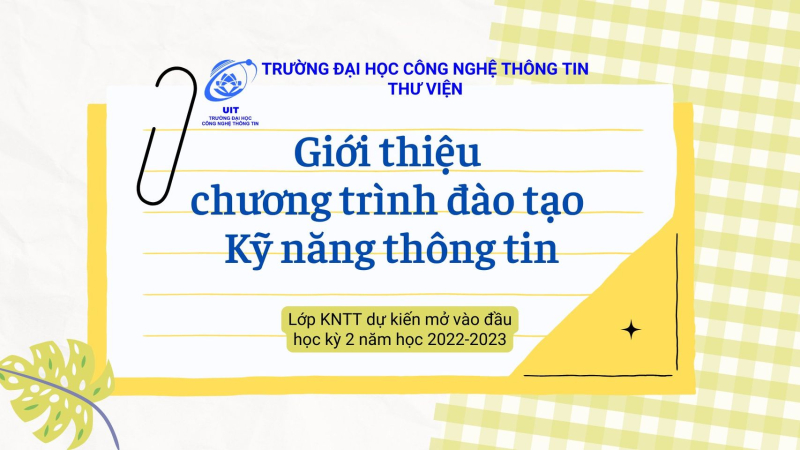
“Kỹ năng thông tin – Information Literacy” liên quan đến khả năng làm chủ thế giới thông tin của mỗi cá nhân, thông qua việc: tiếp cận, xử lý thông tin; ứng xử/tương tác với thế giới thông tin; hiểu về các khía cạnh đạo đức, pháp luật của việc khai thác, sử dụng thông tin. Kỹ năng thông tin được cấu thành tương tự như một mô hình năng lực A.S.K, dựa trên 3 thành tố: Attitude (thái độ), Skills (kỹ năng), knowledge (kiến thức/hiểu biết). Information Literacy rất gần gũi và quen thuộc với nhiều sinh viên ở các quốc gia phát triển trên thế giới, tuy nhiên, ở Việt Nam vẫn còn khá mới mẻ và chưa phổ biến rộng rãi”.
Kỹ năng thông tin là môn học chuyên ngành trong chương trình đào tạo của các ngành như: Quản trị/Quản lý thông tin, Khoa học thông tin, … Tuy nhiên năm 2015 tại Đại học Khoa học xã hội và Nhân văn, ĐHQG Hà Nội đã triển khai dự án đưa môn học này trở thành môn học của tất cả các chuyên ngành của Trường và sinh viên năm nhất sẽ học môn này trong năm đầu nhập học. Vậy có thể thấy rằng KNTT là kiến thức cần thiết cho tất cả sinh viên ở nhiều chuyên ngành khác nhau, tùy chuyên môn đặc thù sẽ có những thiết kế nội dung CTĐT phù hợp.
Tại UIT, kể từ năm 2019, Thư viện đã tổ chức các lớp KNTT ở dạng lớp học kỹ năng với những nội dung tóm gọn và cần thiết nhất cho sinh viên khối ngành CNTT&TT. Chương trình đào tạo KNTT được thiết kế riêng cho sinh viên Trường Đại học Công nghệ Thông tin, phù hợp với nhu cầu thực tế phục vụ việc học tập và nghiên cứu khoa học tại Nhà trường; Nội dung của chương trình đào tạo KNTT được tham khảo từ các trường ĐH nổi tiếng như: ĐH Cambridge, ĐH Harvard, ĐH Chicago,...
- Teacher: Admin User